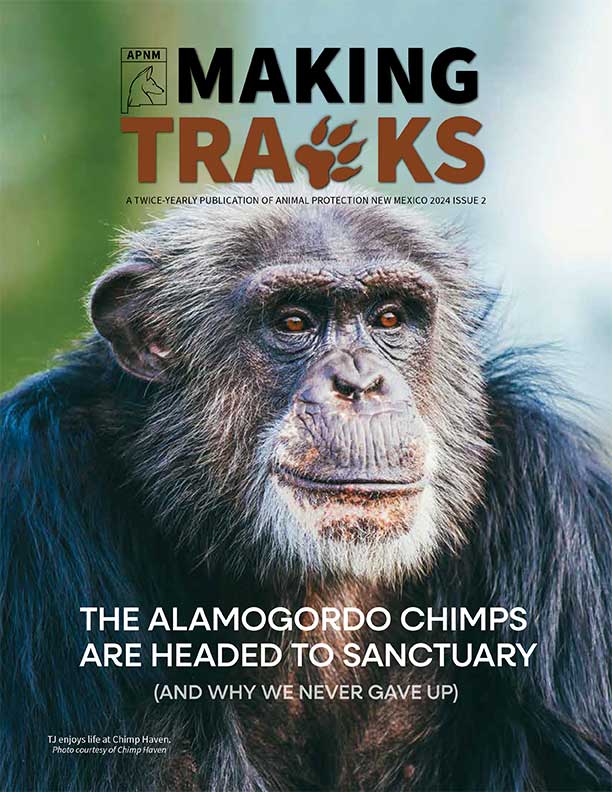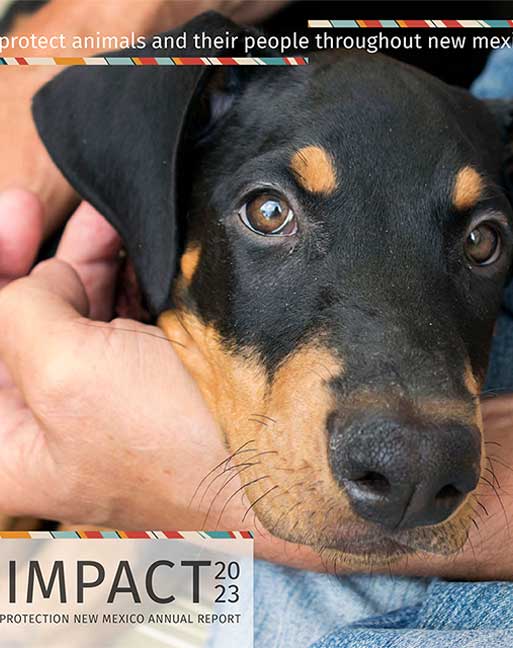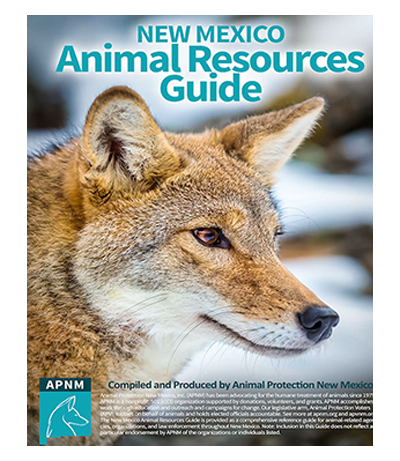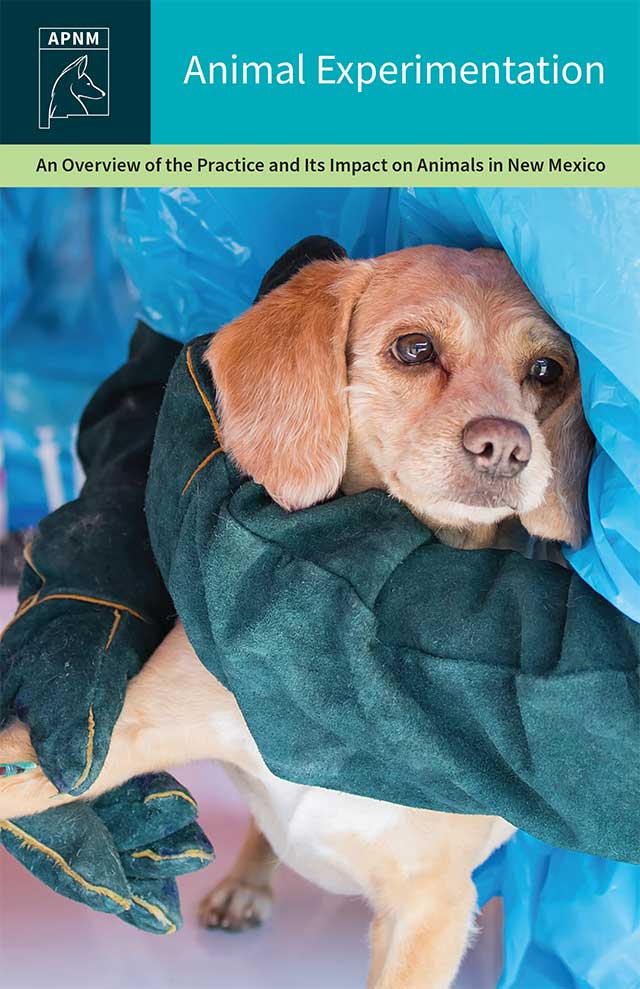 After launching APNM’s newest program, Protecting Animals in Science, in 2021, APNM is getting closer to uncovering and more fully understanding the scope and details of invasive animal experiments being conducted in New Mexico using taxpayer dollars. This is the first step toward eventually being able to reduce and/or eliminate horrific protocols being conducted on animals in multiple New Mexico laboratories.
After launching APNM’s newest program, Protecting Animals in Science, in 2021, APNM is getting closer to uncovering and more fully understanding the scope and details of invasive animal experiments being conducted in New Mexico using taxpayer dollars. This is the first step toward eventually being able to reduce and/or eliminate horrific protocols being conducted on animals in multiple New Mexico laboratories.
But APNM is not just looking to make a difference locally with this new program. Last year, APNM publicly endorsed the FDA Modernization Act 2.0, worked tirelessly to increase support for the bill, and watched with glee as Congress passed the FDA Modernization Act 2.0 on December 23, 2022. President Biden signed the bill into law on December 29, 2022.
Passage of the FDA Modernization Act 2.0 has the potential to prevent the misery of millions of animals each year, ushering in a new era of modern, science-based drug evaluation in the United States that will ultimately benefit people as well. The new law removes an 80-year-old mandate requiring drug developers for biologics and biosimilar drugs to conduct animal tests before human trials, and instead allows them to use non-animal, human-relevant methods. Currently, 90% of all drugs fail before getting FDA approval, due to reliance on animal tests. Millions of animals, including cats, dogs, mice, pigs, and rabbits, are used to develop drugs each year. By removing the FDA’s mandate for animal testing, drug developers have the choice to spare the suffering of animals and use modern testing methods that are often cheaper and more reliable.
Bringing this consequential approach closer to home, APNM partnered with Albuquerque City Councilor Tammy Fiebelkorn to help pass Resolution R-22-73, The Reducing Animal Testing Act or “RAT Act.” In collaboration with the University of New Mexico (“UNM”), this resolution allows UNM to test vaccines and drugs on tissue from the City’s discarded spay/neuter surgeries rather than live animals. APNM secured experts to speak to the scientific validity of the proposal, mobilized Albuquerque residents to contact city councilors, and testified in favor of the bill, which passed unanimously. Next steps involve evaluating protocols that currently use animals and working with local scientists to convert those experiments to non-animal approaches.
Finally, building on progress made years ago when New Mexico’s Public Education department policy mandated non-animal dissection choice for students objecting to the harmful practice of animal dissection in school, APNM is helping link students, parents, and educators to those choices. APNM’s Protecting Animals in Science program hosted an informative Town Hall discussing Dissection Choice in New Mexico schools and the dizzying array of modern methods available for teaching anatomy and biology without animal dissection. Joined by the Director and Assistant Director of Animalearn — an education program of the Pennsylvania-based American Anti-Vivisection Society — educators, parents, and students were able to hear about the most effective and humane ‘dissection’ methods to teach and study science, all without harming animals.
In the fall of 2022, APNM continued to grow its Protecting Animals in Science program by hiring Sadie Jacobs, an attorney with experience in legal analysis and research related to state and federal legislation. As APNM’s Protecting Animals in Science Program Manager, Sadie utilizes her background in public records requests and animal law to support systemic change in current practices and policies involving invasive experiments on animals in New Mexico and beyond.





